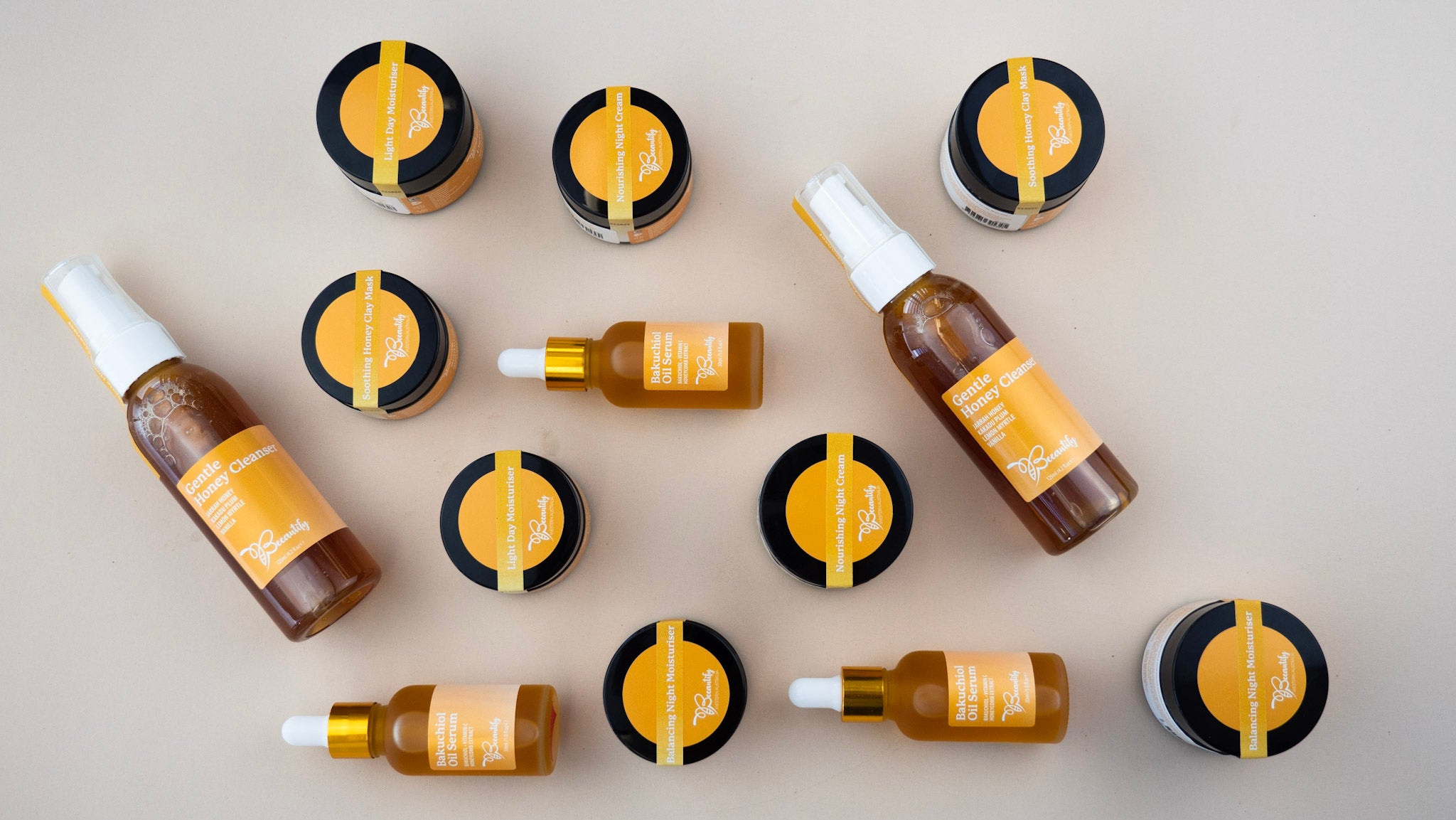A good skincare routine is not just about looking and feeling great, but also about keeping your skin hydrated and healthy.
This is why it’s important to pay attention to what you’re putting on your skin every day.
Unfortunately, in the pursuit of profits, many commercial skincare companies prioritise cheaper synthetic ingredients over the safety of their consumers and the environment.
But here at Beeautify, we believe that you shouldn’t have to choose between looking your best and looking out for your health and the planet.
The solution is natural skincare – and here’s why.
What does it mean to be natural?
Simply put, natural skincare uses ingredients that come from natural sources without any synthetic additives.
Not only are natural products more environmentally friendly, but they can also be gentler on the skin and just as effective, if not more so.
But be careful, not all products claiming to be natural actually are. So be sure to check the label or a brand’s website to see if they truly walk the walk.
Ultimately, the value and effectiveness of a natural skincare product comes down to the integrity of the company and the quality of their formulations.
Natural advantages
By choosing natural skincare products, you’re not only doing what’s best for your skin, but also for the environment.
Natural products are gentle and less likely to dry or irritate your skin. They are made from sustainable, organic ingredients and don’t damage the environment with harmful by-products.
They also have fewer chemicals that can be damaging to your skin or body. Synthetic ingredients can be harmful, particularly in the long term.
Even approved synthetic ingredients are often only safe at a particular level of exposure, which can easily be exceeded if several of your products happen to share the same ingredients.
What’s more, when you use different synthetic skincare products together, even scientists can’t predict the possible interactions. It’s like entering uncharted territory, and there could be various unfortunate consequences.
So, it’s important to be careful with synthetic skincare routines, especially if using multiple products.
Naturally effective
People used to think that natural products were less effective, but that’s certainly not true anymore.
In fact, natural skincare is only getting better and more effective as we uncover more of nature’s secrets.
Here at Beeautify, we’ve scoured the Australian wilderness for powerful native ingredients to bring you a uniquely potent natural skincare range.
For example, our ethically produced jarrah honey is infused with the botanical properties of the eucalyptus forest, featuring some of the highest levels of antioxidants and antimicrobial activity in the world.
The Kakadu plum and quandong in our Gentle Honey Cleanser and Soothing Clay Mask are no slouches either, containing the highest known levels of vitamin C found in nature.
And of course, that’s only scratching the surface of natural skincare’s potential.
Make the switch to natural skincare and experience a better way, both for your skin and for the world we live in.
Natural Honey Skincare by Beeautify
References
A. Panico, F Serio, F. Bagordo et al. ‘Skin safety and health prevention: an overview of chemicals in cosmetic products’, accessed February 2023. https://www.ncbi.nlm.nih.gov/pmc/articles/PMC6477564/
Hyun Jung Koo and Byung Mu Lee, ‘Estimated exposure to phthalates in cosmetics and risk assessment’, accessed February 2023. https://pubmed.ncbi.nlm.nih.gov/15513891/
Jasmine C. Hollinger, Kunal Angra and Rebat M. Halder, ‘Are natural ingredients effective in the management of hyperpigmentation? A systematic review’, accessed February 2023. https://www.ncbi.nlm.nih.gov/pmc/articles/PMC5843359
Julia R. Barrett, ‘Chemical exposures : the ugly side of beauty products’, accessed February 2023. https://www.ncbi.nlm.nih.gov/pmc/articles/PMC1253722/
Juliet M. Pullar, Anitra C. Carr and Margreet C.M. Vissers, ‘The roles of vitamin C in skin health’, accessed February 2023. https://www.mdpi.com/2072-6643/9/8/866



